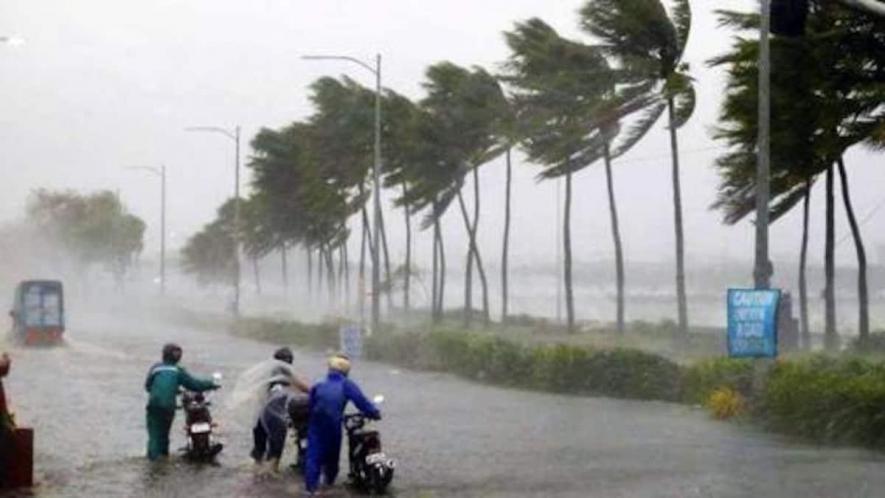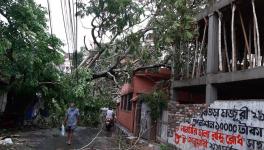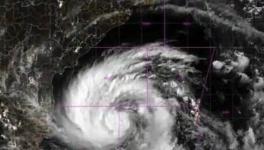Tropical Cyclones Become Stronger as Earth Warms

Super cyclone Amphan has just passed, devastating large parts of India and Bangladesh. In India, large parts of West Bengal including capital Kolkata, faced its wrath. Just a year back, another Cyclone Foni had wreaked havoc in the eastern coast of India. Large and very intense storms have become an almost yearly phenomenon in different parts of the globe. Every year super cyclone on the tropics unleash a heavy toll on human lives and properties.
For at least the last two decades a very significant question in cyclone and hurricane research is whether there is already a discernible trend of stronger winds with global warming or whether this will only be observed in the future. Scientists believe that as the Earth warms due to man made circumstances, the ocean temperature is also on the rise. As the oceans get warmer, the tropical storms are getting more fuel from the warm ocean waters and also the water vapour in the air. However, scientists have been apprehensive of the linkage of global warming and stronger storms due to lack of statistical confidence.
But a new study has come up with evidence based upon observations which indicate that global increase in storms are linked to man-made global warming. The study was published in PNAS (Proceeding of the Natural Academy of Sciences) on May 18, and was conducted by a group at National Oceanic and Atmospheric Administration and University of Wisconsin. The observed trend in the study matches with the projections of computer model simulations of stronger storms with global warming.
The study found that there is a global increase of about 8% chance per decade that a tropical storm will get intensified to Category 3 or even greater.
One of the hindrance in gathering observational evidence in this area of research has been the tropical cyclone data itself. Around the globe, various methods are used to gather the cyclone data as a result of which this data is mostly heterogeneous, meaning a global trend from the direct observational data is hard to find out. The researchers developed a homogenised data form from the heterogeneous data collected from around the world. James Kossin, the lead author of the study was quoted to have said, “The main hurdle we have for finding trends is that the data are collected using the best technology at the time. Every year the data are a bit different than last year, each new satellite has new tools and captures data in different ways, so in the end we have a patchwork quilt of all the satellite data that have been woven together."
Also read: Cyclone Amphan Ravages West Bengal, Citizens Call for PM to Declare National Disaster
The study overcomes this in their analysis of global data for a 39 years’ period (1979-2017). This data is satellite-based storm intensity estimations from around the world. This new study is an extrapolation of a previous study by the same group that they published back in 2013. There they had considered the data for a time period of 28 years (1982-2009). In that study, too, they found a positive trend of storm intensity and global warming. But this was rendered short of statistical significance.
“We have a significantly building body of evidence that these storms have already changed in very substantial ways, and all of them are dangerous,” according to Kossin.
Together with stronger and wetter storms, there is also a hidden global trend—tropical storms suddenly jump in their intensity. A storm might have started over a sea with a projected lesser intensity, but within few hours, it gains strength and can jump to a more severe storm. ‘Amphan’ was no exception of it, within record 18 hours, it grew to a category 5 cyclone.
Moreover, tropical storms are getting wetter with warming of the Earth. This means, heavy rainfalls and hence extensive flooding result as an aftermath of any storm.
Get the latest reports & analysis with people's perspective on Protests, movements & deep analytical videos, discussions of the current affairs in your Telegram app. Subscribe to NewsClick's Telegram channel & get Real-Time updates on stories, as they get published on our website.
























